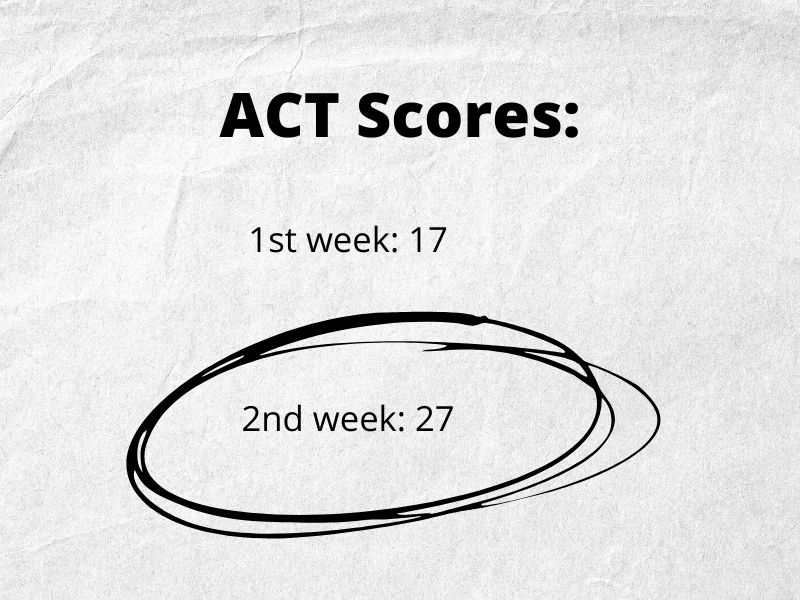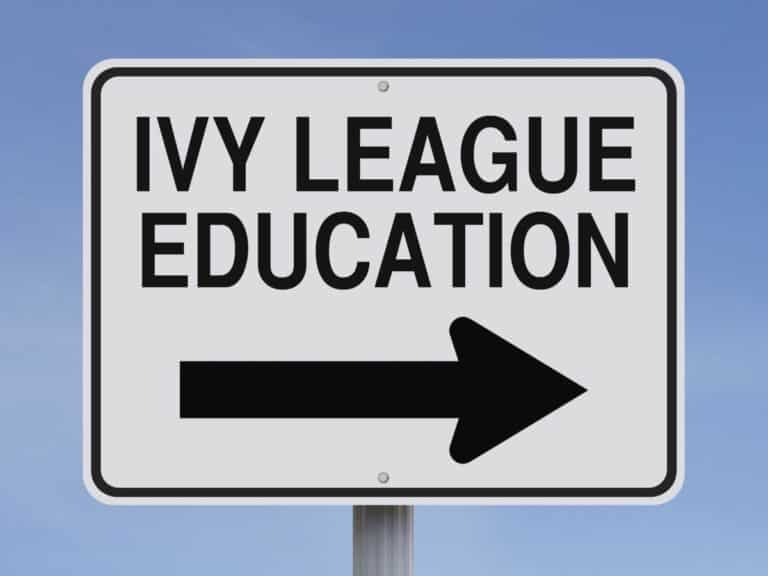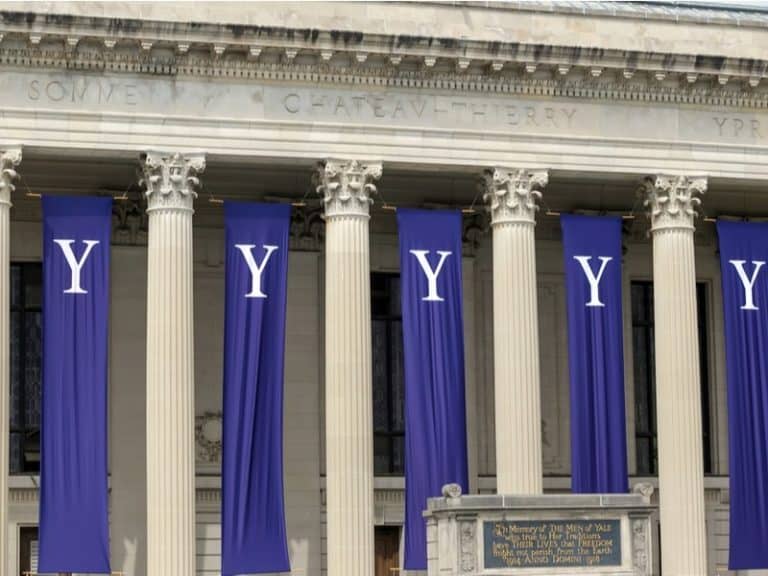What to Do in Middle School to Get Into Harvard or Yale
During the admissions process, it’s true that Harvard University will only consider things that have something to do with the applicant’s high school — from the curriculum, grades, extracurricular activities to standardized test scores. But it doesn’t mean, however, that the years prior to secondary education don’t matter.
You don’t have to wait for your middle schooler to be in high school before you start preparing him or her for the Ivy League. That’s because the perfect time for it is right this instance.
Everything your child does in middle school can have an impact on high school and college applications, too!
And that is why you should continue reading this post if both you and your youngster are looking to apply to Harvard and receive an acceptance letter in the process. Below, I will talk about some of the things that should be done in middle school if the ultimate goal is to have a Harvardian in the family a few years from now.

Consider Enrolling Your Kid Into GT Program
If your school offers a GT, or Gifted and Talented, program I strongly encourage you to make every effort to put your child into it.
For instance, in our county, kids who were accepted into the GT program in elementary or early middle school, are often on the path to taking the most rigorous classes in high school. Conversely, a student who wasn’t in GT is less likely to have even enough AP classes before graduation.
It’s because GT kids in 6th grade learn 8th-degree programs. And in high school, they are typically qualified to take AP Calc AB and BC.
I know it depends on the school system, but even if your child did not pass a CogAT test that defines whether she qualifies for the Gifted and Talented program, the parents can request to enroll the kid anyway.
If the kid did not take a CogAT test yet, please buy books and train for the test ASAP.
Encourage Good Study Habits
Getting an acceptance letter from Harvard is just half the battle. Staying at Harvard long enough until your child obtains his or her degree is also an integral part of the journey!
According to a survey conducted by the Harvard Crimson, which is the official student newspaper of Harvard University and the country’s oldest continuously published daily college newspaper, Harvardians spend an average of 49 hours a week partaking in academics — class, study and work.
Instilling excellent study skills in middle school can help your little one not only obtain good grades later on that can impress Harvard’s admissions officers but also develop self-esteem, self-confidence and competence.
Also, it can help in the better management of tension and stress — applying to an Ivy League is riddled with those!
If your early teener is exhibiting signs of reading comprehension issues, test anxiety, procrastination and the like and the ultimate goal is to go to Harvard University, the best time to start to deal with them is in the middle school where getting rid of bad habits, which can get in the way of the college application process, is still so much easier to pull off.
Here are some quick tips on how you can get your child to develop good study habits:
- Identify learning style
- Choose the appropriate study methods
- Create a regular study schedule — and stick to it
- Set up a dedicated spot for studying
- Get rid of distractions during study times
- Include timed breaks to study sessions
- Encourage good note-taking habits
- Regularly administer practice tests
- Maintain proper hydration and have healthy snacks
- Establish healthy sleep habits
Make Reading a Routine
Harvard University requires applicants to compose and submit only one personal essay.
That’s wonderful because your middle schooler can dedicate all of his or her time and attention to making that single application essay toward the end of those high school years. But then it can be a scary thing, too, since your child only has one shot to persuade Harvard’s admissions officers to send an acceptance letter.
Don’t wait until the college application season arrives before your youth practices how to write a winning personal essay — the best time to hone his or her writing skills in preparation for a Harvard application is right now!
And reading is one of the best ways to improve one’s writing skills because:
- It helps expand the vocabulary
- It shows how words can be used innovatively
- It provides exposure to many different writing styles
- It gives ideas of things to explore and write about
From classics that have stood the test of time to modern new releases that are yet to leave an indelible mark in the literary world, you can count on books appropriate for middle school kids to help your youngster improve his or her writing ability until it’s worthy of a massive envelope from the admissions office at Harvard.
According to teachers themselves, middle schoolers should be reading anywhere from 15 minutes to 1 hour per day, of course outside of school and excluding school materials.
It goes without saying that reading can help develop your child’s reading comprehension. When it’s time to prepare for and take the SAT or ACT, having good reading comprehension skills is crucial for obtaining grades impressive enough for Harvard University. Without a clear understanding of test questions, getting a high score is unlikely.

Plan High School Courses to Take
You would think that highly selective colleges and universities in the land have very strict high school course requirements that hopefuls must meet in order for their applications to be considered. Believe it or not, many of them don’t. And that includes Harvard, which, according to its website, does not expect students to follow a particular academic path.
But it adds that the strongest applicants tend to be those with the most rigorous curriculum available to them.
Just check out the recommended — not required — high school courses that, according to Harvard University itself, make up an ideal 4-year preparatory program so that you and your little one can be guided accordingly:
- English – 4 years (with extensive practice in writing)
- Math – 4 years
- Science – 4 years (biology, chemistry and physics and an advanced course in any of them)
- History – 3 years (including American and European history)
- Foreign language – 4 years (just one language)
Excelling in a challenging sequence of math courses that correspond to your teener’s educational interests and aspirations may help increase his or her admissions chances to Harvard.
Data science, computer science, statistics, mathematical modeling, calculus — these and other advanced math classes are given equal consideration by the Ivy League in the admissions process.
But it’s important to note that Harvard understands that not all difficult math courses are available to all high schoolers — just look for the most rigorous path your child could take. But if he or she is planning on enrolling in an engineering program or another where knowledge in calculus is required, then taking high school calculus is required.
Consider Pre-AP Courses
There are a couple of reasons why it’s generally a good idea for your youngster to take AP courses in high school: to have a more rigorous curriculum, which Harvard likes, and potentially earn college credits.
As a general rule, the more challenging the AP courses and the higher the exam scores, the better.
Since your child is still in middle school, it’s not just figuring out which AP courses he or she should take in order to enjoy increased admissions chances to Harvard University — your adolescent may start taking pre-AP courses, which, as the name suggests, are classes that can prepare kids for AP courses in high school.
But first things first: pre-AP courses do not have final exams, which is why, unlike AP courses with final exams, they do not convert into valuable college credits.
Here are the available pre-AP courses across various domains, ranging from English, math to the arts:
- Pre-AP Algebra 1
- Pre-AP Algebra 2
- Pre-AP Biology
- Pre-AP Chemistry
- Pre-AP English 1
- Pre-AP English 2
- Pre-AP Geometry with Statistics
- Pre-AP Visual and Performing Arts
- Pre-AP World History and Geography
Keep in mind that taking pre-AP courses is not a requirement to get into Harvard University or any other prestigious and/or selective institutions. As a matter of fact, it’s not mandatory to be able to take AP courses in high school.
But if faring poorly in difficult AP courses and getting low AP exam grades later on are not options, perhaps you and your middle schooler might want to consider pre-AP classes. Besides, taking some of them can help him or her foster skills essential for shining not only in AP courses but also in the college admissions process!
Like many institutions in the country, Harvard University gives credits to AP exams. However, your child will have to score 5 on a minimum of 4 AP exams — pre-AP classes may be able to help in making that happen.

Take the SAT or PSAT
Did you know that your little one can take the SAT as early as middle school? However, the score he or she will get will not be stored in the SAT server, which is a good thing just in case it’s not that high.
There are a handful of perks that come with middle schoolers taking the SAT:
- Allows kids to get comfortable with reviewing for the SAT as well as actually taking it — 10% to 40% of students have test anxiety, which can influence SAT scores.
- Gives students the opportunity to have more attempts and chances to attain SAT scores high enough for admission to some of the most selective colleges in the land.
- Provides measurable insight on the academic strengths and weaknesses of children as well as helps determine future higher education and career prospects.
Since, just like what’s mentioned before, SAT scores obtained in middle school will not be stored in the SAT server to haunt little ones for the rest of their lives, your child can take the standardized test and get a sense of what it’s like to do so without the need to worry about making a lifelong blunder.
Getting a not-to-high SAT score is very much possible, especially if he or she has yet to take certain courses. But it’s a must to let your youth know that it’s not the end of the story of one’s academic development.
According to the Ivy League school itself, SAT scores are usually better predictors of Harvard University grades than high school grades. So, in other words, if your middle school child’s composite SAT score is impressive enough to help him or her get accepted to the prominent institution, there’s a big chance for reaping academic success.
And by gearing up for it really well, a hard-to-earn Harvard bachelor’s degree should not be that elusive.
Read Also: Are SAT and ACT Still Important in Admissions
Explore Hobbies and Passions
A recent survey reveals that up to 44% of undergraduate students have no idea what they want to do after college. Since it’s probably Harvard or bust for you and your little one, it’s of utmost importance that your Harvard-bound child is well-aware of the career path he or she would like to take — the Ivy League wants promising students.
Don’t wait for high school to arrive before you encourage your child to partake in extracurricular activities.
In middle school, there are plenty of choices available, ranging from art class to Lego league. While the options may not be as extensive as in high school, middle school extracurriculars can pave the way for subsequent ones.
Harvard University itself says that it’s interested in students who shine in one or more extracurricular activities. And middle school is the perfect time for children to discover the things they find interesting and fulfilling, which they can take to the next level the moment they step foot in high school.
But when it comes to college applications, having more extracurricular activities doesn’t necessarily mean the better. As in most instances in life, quality over quantity.
Here are some foolproof tips on having a standout application with the help of extracurriculars:
Take on leadership roles
Harvard claims that it produces future leaders. And to show the Ivy League that your middle schooler is a leader in the making, encourage him or her in high school to not just join an organization but also run for its treasurer, secretary, vice president or even president. Founding a high school club will definitely look great on the application for Harvard.
Run for student council
Nothing screams future leader louder than being a student council member. This can help your youngster develop his or her leadership roles by organizing and carrying out various school activities and serving as the voice of the studentry. But ensure that your child really wants to be a leader and not just have a remarkable extracurricular listing.
Participate in sports
Engaging in sports benefits not only physical health but mental health, too, which can have a positive impact on one’s academic performance. Being the team captain helps foster and establish leadership skills.
Harvard has the most number of NCAA Division 1 sports teams than any other colleges and universities. This means that there are lots of spots to fill. And if your child is exceptionally good at basketball, football, ice hockey, rowing or swimming and diving, all of which the Ivy League holds dear, he or she is very much likely to get into Harvard.
Here’s a quick fact: at Harvard, the acceptance rate for recruited athletes is a whopping 90%!
Read more about other admission hooks that selective colleges are looking for.
Join student competitions
Having awards and recognitions is not a requirement to get into Harvard and other schools, prestigious or otherwise. But it can definitely help, especially since your young one will be competing for an available slot against high-performing students. And that is why joining and winning math, science, debate, writing and/or art competitions may be a plus.
Volunteer in the community
One of the things that Harvard takes into account is whether or not an applicant can contribute something to the school and its students. And a wonderful way to show those admissions officers that your child is generous and has a big heart is by encouraging him or her to participate in volunteer work through the school, local organizations or charities.
Engage in summer activities
Although it’s true that summer is an opportunity for your middle schooler to take a break and have some fun, it’s also a chance for him or her to establish pursuits that can ultimately lead to an impressive Harvard application.
Traveling, learning a foreign language, taking a cooking class, enrolling in a sports program — these are just some of the many amazing options. Combined with laudable participation in extracurricular activities during the school year, focused summer activities may help an already strong college application look even stronger.
Commit to the activity
Generally speaking, students should devote anywhere from 5 to 10 hours per week to each extracurricular activity in order to exhibit a commitment to it. Of course, it will depend on how many activities they are devoted to. But no matter the case, it’s of utmost importance to never let your child’s academics suffer at the expense of extracurriculars.
Just Before You Start Planning on Getting Into Harvard
Since Harvard University is what you and your child are aiming for and not just any other college, the earlier you get in preparing for the grand moment, which is the college application season, the better the chances of gaining admission to it. And this means establishing the right habits in middle school for a high school that’s Ivy-worthy.
Above, you came across some of the steps you may take in order to prepare your youth for a bright future.
With careful planning and consistency early on, getting into Harvard need not be as stressful and menacing in high school as there will be fewer to no drastic things to do in exchange for an offer to enroll.
But before you go, make sure that your middle schooler is on-board with earning a bachelor’s degree from Harvard University. It’s perfectly understandable why you want nothing but the best for your child — and there is no denying that Harvard is one of the best. But don’t forget the importance of allowing your little one to make choices.
Ruling out other options should also be avoided. This is especially true since no amount of preparation, including that which starts in middle school, can guarantee an acceptance letter from Harvard.
Disclaimer: The views and opinions expressed in this article are those of the authors and do not necessarily represent those of the College Reality Check.





